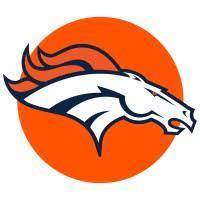Pamela Robertson
Everything you need to know this week: January 19th
- MLK Jr. Day, No School is on Monday, January 19th
- Homework went home on Friday & is due Friday, January 23rd
- Please be sure to respond to your child's Friday Journal
- Tech is our rotation for STEAM this week! Friday specials this week: Library
- Dress for the weather! We will go outside if the temperature "feels like" it's above 20 degrees, so please have students bring coats, boots, and cold weather gear as needed.
- Please remember to label your child's coats, boots, gloves, etc.
MYSTERY READER LINK
Shop our class Scholastic page:https://orders.scholastic.com/324HZG
Mrs. Robertson's Reading CKLA
Skills Unit 4
- Spelling Words Practice
- Spelling Assessment
- Review & Practice
- Tricky Words Review
- Sound Spelling Alternatives & Tricky Spellings
- Spelling Tree
- Nouns (Common, Proper, & Irregular)
- Plural Nouns
- Capitalization & Punctuation
- Antonyms & Synonyms
- Action Verbs
- The Job Hunt Readings
- Boost Reading
- IXL Learning
-
Spelling:
- what
- about
- alike
- afraid
- China
- decide
- debate
- appetite
- America
- category
Mrs. Robertson's Math (Saxon)
- Lesson 101 Identifying, Describing, and Comparing Geometric Solids
- Lesson 102 Selecting an Appropriate Tool for Measuring Length
- Lesson 103 Multiplying by 1 Multiplying by 100
- Lesson 104 Finding Perimeter
- Lesson 105-1 Subtracting 9 Facts
- Lesson 105-2 Written Assessment 20 Writing Observations From a Graph
- Lesson 106 Identifying Activities That Take One Hour, One Minute, and One Second Telling and Showing Time to the Minute
- Lesson 107 Counting Quarters, Dimes, Nickels, and Pennies Showing Money Amounts Using Quarters, Dimes, Nickels, and Pennies
- Lesson 108 Identifying Parallel Lines and Line Segments
- Lesson 109 Adding Three-Digit Numbers and Money Amounts Estimating Sums
- Lesson 110-1 Multiplying by 5 Facts Drawing Pictures and Writing Multiplication Number Sentences to Show Equal Groups Making an Organized List to Solve a Problem
- Lesson 110-2 Written Assessment 21 Oral Assessment 11 Measuring Weight Using Customary Units
- 05-2 Written Assessment 20 Writing Observations From a Graph
Writing: Persuasive Writing
-
-
- Express an opinion or point of view in writing, providing reasons and supporting details for preference or opinion using the linking word because.
- Create a title that is relevant to the topic or subject of the text.
- If writing about a specific book or read-aloud, refer to the content of the text.
- Writing to Reflect Audience, Purpose and Task
- Add details to writing
- Begin to use tools, including technology, to plan, draft, and edit writing
-
-
-
-
Lesson 1 The Ancient Greeks
- Lesson 2 Mount Olympus, Part I
- Lesson 3 Mount Olympus, Part II
- Lesson 4 The Olympic Games
- Lesson 5 All for Sparta
- Lesson 6 Athens and the Olive Tree
- Lesson 7 Athens: The Birthplace of Democracy
- Pausing Point
- Lesson 8 Marathon
- Lesson 9 Thermopylae: The Persians Strike Again
- Lesson 10 The Great Thinkers of Greece
- Lesson 11 Alexander the Great, Part I
- Lesson 12 Alexander the Great, Part II
- Domain Review & Assessment
-
-
History: Ancient Greece
-
-
- Geography:
- Locations of Greece, the island of Crete, and the Mediterranean and Aegean Seas
- Locations of the ancient city-states of Athens and Sparta
- History:
- Athens as a city-state; the beginnings of democracy
- Sparta as a military city-state that was sometimes the enemy of Athens
- Persian Wars: Battles of Marathon and Thermopylae
- Olympic Games
- Worship of gods and goddesses
- Great thinkers: Socrates, Plato, and Aristotle
- Alexander the Great
-
Science: Electricity and Magnetism
- A. Electricity
- Static electricity: electric charges on the surface of things
- Current electricity: electrical charges flowing in a circuit through wires and other devices
- Electricity is a form of energy; it can cause changes.
- Matter contains two types of electrical charges: positive and negative.
- Types of electricity:
- B. Magnets and Magnetism
- Magnet: a metal object that can exert a force through a distance on certain types of metal objects.
- A magnet has two poles: north and south.
- Similar magnetic poles attract each other; opposite magnetic poles repel each other.
- C. Designing and Engineering Useful Devices
- Defining a problem
- Developing possible solutions
- Refining (optimizing) the design solution
- Electricity and magnetism are used in many useful devices.
- All useful devices are developed through engineering design, a process which includes:
- Scientists and engineering designers often work together in teams to solve problems and design effective solutions.
- D. Safe Use of Electricity and Magnetism
- never put your finger or anything metallic in an electrical outlet.
- never touch a switch or electrical appliance when your hand or body is wet.
- never put your finger in a lamp socket.
- Electricity is potentially dangerous.
- Safety rules for electricity include:
Parent Resources:

DIBELS Reading Assessment: is administered three times a year and also continuously monitored throughout. You will be receiving the results in Thursday folder after each benchmark.
- Want to know more about DIBELS click here: Parents Guide to Dibels
- Want to know more about NWEA click here: Family Guide To NWEA & Family Tool Kit for NWEA
- EPIC books: https://www.getepic.com/sign-in ( we will use this in class.)
- Reading Rockets: Reading Rockets Articles & Tips for Reading at Home
- Vooks: Animated Video Books for Students to Read Along With
- Phillip S Miller Library: Library Parent Resources
- Storyline Online: Storyline Read Alouds
- Prodigy: Prodigy Practice for Math & Reading (another student favorite)
- Boddle: Boddle Math (students LOVE this)
- Prodigy: Prodigy Practice for Math & Reading (another student favorite)
- Xtra Math: https://home.xtramath.org/ (great for fact practice)
- Khan Academy: Kahn Academy ( great for math support with videos that explain skills and concepts)
August/ September- RESPECT - Showing high regard for an authority, other people, self and country. Treating others as you would want to be treated.
October- Responsibility: Being honest and accountable in word and deed. Having a sense of duty to fulfill tasks with reliability, dependability and commitment.
November- Empowerment: We believe children must be equipped with the ability to make good decisions independently of adults. By internalizing the habits and behaviors that demonstrate responsibility, they will be empowered to lead successful, productive lives.
December- Sharing: Developing a willingness to share knowledge, experiences and time to enrich learning, give back to the community through school projects and constantly seek ways to improve through continuous input and feedback
January- Patience: We strive to develop Aspen View students with a level of perseverance and diligence that will instill the confidence needed to succeed in whatever endeavor our students undertake
February- Excellence: Striving to do the best in everything you do, while maintaining a positive attitude and a spirit of self-confidence
March- Compassion: Caring in action. Treating others with kindness, generosity and a forgiving spirit.
April- Teamwork: We will create an atmosphere that fosters collaborative and team-focused success to enrich our students and prepare them for high school, college and a collaboration driven marketplace
May- RESPECT - Showing high regard for an authority, other people, self and country. Treating others as you would want to be treated
STEAM SCHEDULE 10:00-10:45am
*WEEKLY ROTATION*
|
Week 1 |
ART |
|
Week 2 |
STEM |
|
Week 3 |
MUSIC |
|
Week 4 |
TECHNOLOGY |



